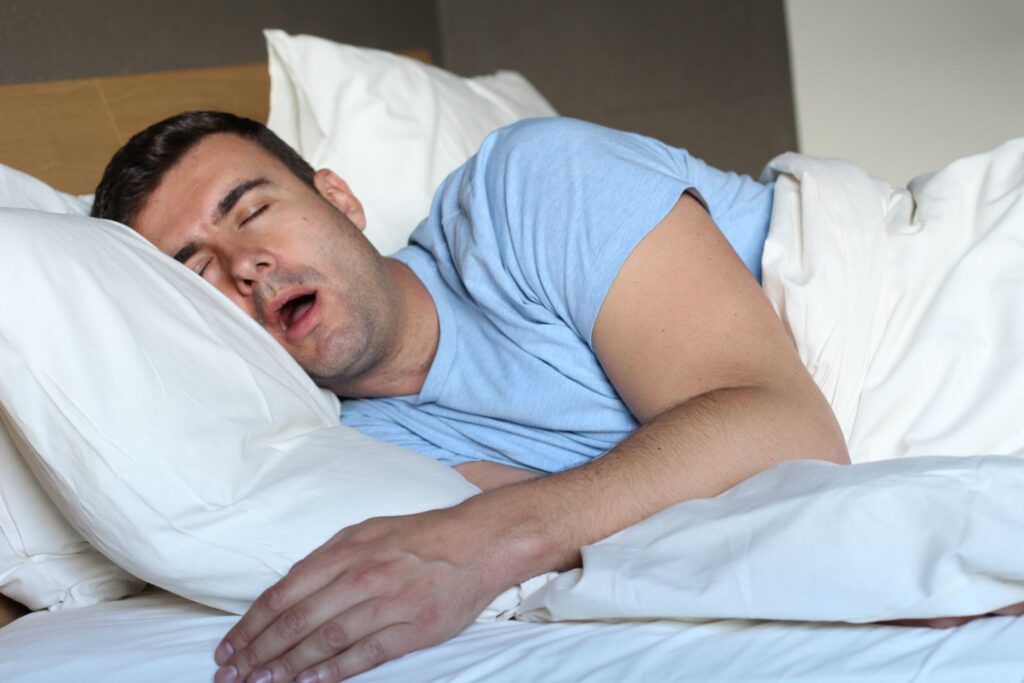
You might have a sleep disorder if you tend to wake up in the morning feeling more drained than when you drifted off the night before. For instance, obstructive sleep apnea (OSA) occurs when your breathing is blocked at night. This disrupts the natural flow of oxygen, which in turn interrupts the circadian cycles required to maintain your oral and overall health.
Drooling is a common symptom that alerts many people to the fact that they’ve developed an issue. Continue reading to learn more about why this happens and how to address it!
Does Sleep Apnea Cause Drooling?
Have you noticed a wet spot on your pillow when you get out of bed in the morning? Many people drool at night, and it’s not always symptomatic of an underlying issue, so you might not have paid it much attention.
However, if you experience excessive and frequent drooling at night, you might have a problem. If your airways or sinuses are blocked and your lungs can’t inhale enough air, your mouth is likely to fall open to try to overcome the disruption. This contributes to issues like snoring or gasping for air, and also allows saliva to escape.
How Does Drooling Affect Me?
It’s natural to wonder why you should be concerned about drooling, but if it continues unaddressed, it can have a negative impact on both your oral and overall health. This is because saliva is your mouth’s natural defense against common dental problems. It has a nearly neutral pH balance to counter potential acid damage to your enamel, strengthening your teeth. It also rinses away germs, leftover food, and other particles to keep your mouth clean.
If you’re drooling, you’re losing saliva and are more likely to develop dry mouth. This allows bacteria to flourish, increasing your vulnerability to tooth decay, gum disease, and other damage.
How Can I Avoid Drooling?
There are several things you can do to try to retain your mouth’s moisture while you sleep. For instance, you can sleep on your back rather than on your side or belly to avoid any leakage, or try propping yourself up to reduce apnea episodes.
You can also contact your dentist to discuss potential treatments. For instance, they can provide a custom-fitted oral appliance to adjust your jaw to prevent airway blockages and help you sleep more soundly. They might also recommend a CPAP (continuous positive airway pressure) machine to prevent symptoms of sleep apnea.
If you’re concerned that your drooling points to a larger underlying oral issue, it’s time to consult your dentist!
About the Author
Dr. Khushboo Gandhi has nearly 20 years of experience helping families improve their lives by enhancing their dental health. She began her dental education in India before completing the Advanced Education program for international dentists at the Oklahoma College of Dentistry. Today, she is a member of several prestigious organizations, including the American Dental Association, to stay on top of the latest techniques and technology. She offers a complete array of services to meet all your needs under one roof, including sleep apnea treatments. You can request an appointment on the website or call (972) 532-6506.
